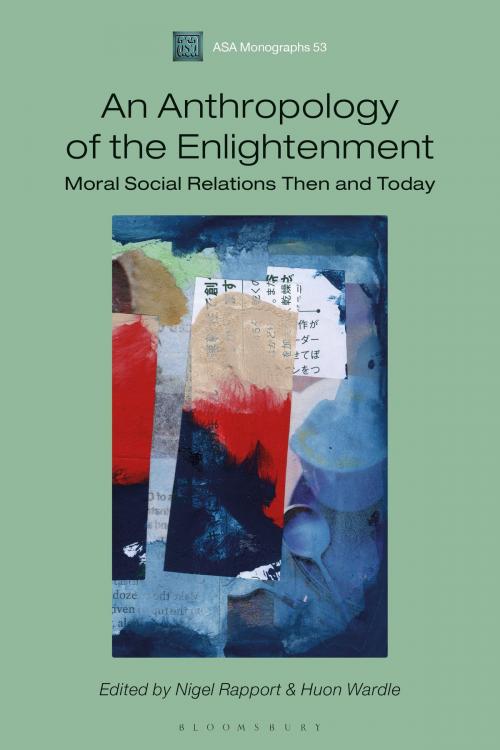An Anthropology of the Enlightenment
Moral Social Relations Then and Today
Nonfiction, Social & Cultural Studies, Social Science, Anthropology| Author: | ISBN: | 9781350086616 | |
| Publisher: | Bloomsbury Publishing | Publication: | December 27, 2018 |
| Imprint: | Bloomsbury Academic | Language: | English |
| Author: | |
| ISBN: | 9781350086616 |
| Publisher: | Bloomsbury Publishing |
| Publication: | December 27, 2018 |
| Imprint: | Bloomsbury Academic |
| Language: | English |
How can we rethink the terms of Enlightenment anthropology in a manner and an idiom
appropriate to the contemporary era? The essays collated here argue for anthropology's
use in acknowledging, exploring and interpreting divergence and ideological conflict over
human meaning.
The volume is structured around some of the key themes that the Enlightenment fostered,
including human nature, time, Earth and the cosmos, beauty, order, harmony and design,
morals, and the query of whether wealthy nations make for healthy publics. It focuses in
particular on how 'moral sentiment' offered a guiding idea in Enlightenment thought. The
idea of 'moral sentiment' is central to the essays' grappling with the ethical anxieties of
contemporary anthropology. The essays therefore trace historical connections and fissures,
and focus in particular on Adam Smith's attempts toward an understanding of what would
later be called 'modernity' – where the realism that allows us to understand individual
experience appears at odds with the realism which takes on larger scale social processes
of enculturation or globalization.
With an afterword from Marilyn Strathern, this volume makes a strong addition to the ASA
conference proceedings.
How can we rethink the terms of Enlightenment anthropology in a manner and an idiom
appropriate to the contemporary era? The essays collated here argue for anthropology's
use in acknowledging, exploring and interpreting divergence and ideological conflict over
human meaning.
The volume is structured around some of the key themes that the Enlightenment fostered,
including human nature, time, Earth and the cosmos, beauty, order, harmony and design,
morals, and the query of whether wealthy nations make for healthy publics. It focuses in
particular on how 'moral sentiment' offered a guiding idea in Enlightenment thought. The
idea of 'moral sentiment' is central to the essays' grappling with the ethical anxieties of
contemporary anthropology. The essays therefore trace historical connections and fissures,
and focus in particular on Adam Smith's attempts toward an understanding of what would
later be called 'modernity' – where the realism that allows us to understand individual
experience appears at odds with the realism which takes on larger scale social processes
of enculturation or globalization.
With an afterword from Marilyn Strathern, this volume makes a strong addition to the ASA
conference proceedings.















